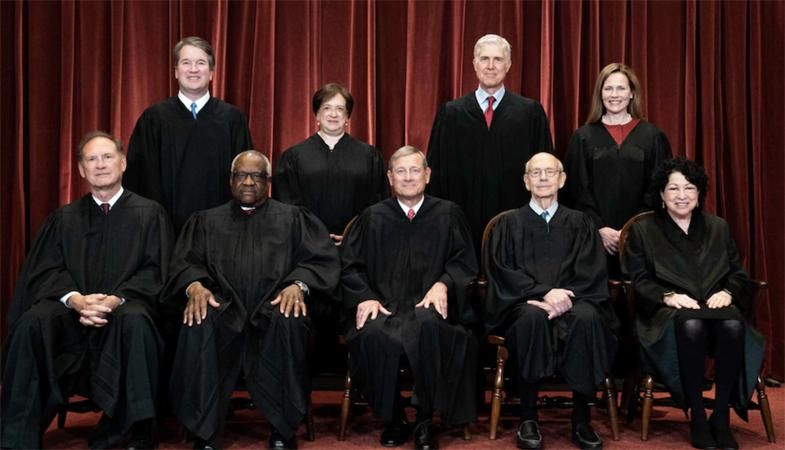For decades, the Religious Right angrily railed against all the GOP-appointed U.S. Supreme Court justices who weren't the far-right culture warriors they longed for — ranging from Ronald Reagan appointees Anthony Kennedy and Sandra Day O'Connor to Gerald Ford appointee John Paul Stevens to Chief Justice Warren Burger (a Richard Nixon appointee). The Religious Right longed for a High Court dominated by severe, rigid ideologues, and they finally got their wish when Donald Trump-appointed Justice Amy Coney Barrett replaced the late Justice Ruth Bader Ginsburg in 2020.
The High Court leaned to the right long before Barrett came on board, but in 2023, the Court isn't center-right — it's radical-right. And everything from abortion to gay rights to affirmative action has come under attack by the Barrett-era Roberts Court.
In a listicle published by the conservative website The Bulwark on July 5, law professor and former federal prosecutor Kimberly Wehle describes eight "consequential" rulings handed down by the Robert Court this term.
"While some decisions announced this term avoided major regressions of established law and revealed unexpected majorities," Wehle explains, "to a large degree those 'wins' merely produced sighs of relief that the Court's conservative majority restrained itself when handed opportunities to substantially reshape established law. In other cases, though, the conservatives steamrolled over laws designed to promote diversity, shield against discrimination, protect the environment, and support students impacted by national emergencies. The implications of the decisions announced this term will be felt for generations."
The High Court, Wehle notes, slammed affirmative action in Students for Fair Admissions v. Harvard University and its companion case Students for Fair Admissions v. UNC; "rejected the Biden Administration’s plan to relieve student loan debt" in Biden v. Nebraska; "struck down Colorado's anti-discrimination public accommodations law" in 303 Creative, LLC v. Elenis; and "took aim at" the Clean Water Act of 1972 in Sackett v. EPA. But the law professor adds that the Court "landed a victory for animal-rights activists" in National Pork Producers Council v. Ross and "declined to disturb a century of precedent bearing on the special legal status" of Native American tribes in Haaland v. Brackeen.
The Court's Democratic and GOP appointees, Wehle observes, came together in two unanimous rulings: Twitter, Inc. v. Taamneh (a decision "in favor of social media giant Twitter") and Groff v. DeJoy (a case involving a Christian U.S. Postal service employee who "refused to work on Sundays and lost his job because of it").
Leave a Comment
Related Post
